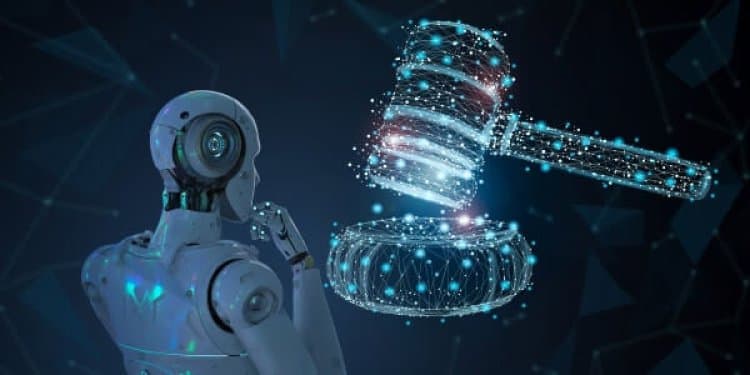For any legal queries or information, contact ask@tlr.ae or call us on +971526443004

5 Legal Issues to consider while using AI
From writing your research papers, converting text to audio, visualizing your ideas, and more. The legal sector, like many other industries, is undergoing a transformation through the use of Artificial Intelligence (AI). This technology has significantly decreased the workload of human workers. Applications like Chat GPT has made a huge influence on students and working professionals.
Well, did it make it too dependent on these technological advancements? Recently a German publisher fired one of their editors for faking an interview with Michael Schumacher using Chat GPT. AI's incorporation into law has resulted in various advantages, such as improved efficiency and precision in legal research, document analysis, contract review, and several others. Nevertheless, as the use of AI grows in the legal industry, several legal concerns have arisen that require attention. These concerns must be addressed to ensure the responsible and ethical utilization of AI in the field of law.
1. Data Privacy
The AI systems necessitate substantial amounts of personal and confidential data that must conform to data protection regulations. Legal experts must guarantee that they possess the appropriate legal permissions to collect and process this data
2. Liability
While working with AI, particularly when this AI-powered software makes legal decisions or recommendations. The legal system needs to clarify who should be held responsible if an AI system makes a mistake. For instance, should the software developer or the user of the software be held accountable?
3. Bias
Another issue arises when AI algorithms are trained on biased data, which could lead to discriminatory outcomes. Transparency in the data used to train AI algorithms is necessary to minimize bias. Moreover, legal professionals must also ensure that they don't reinforce existing biases when they train AI systems.
4. Intellectual property rights
In the case of legal research and analysis, as there are questions over whether the output created by AI is subject to copyright or patent protection. It's unclear who owns the intellectual property created by AI systems - the person who created the software, the user of the software, or the AI system itself.
5. Ethical issues
In the criminal justice system, where the use of AI algorithms could lead to discrimination against certain groups and perpetuate injustices. Legal professionals must ensure that they are using AI ethically and that AI systems are not used to violate individual rights or cause harm.
Although there is a lot of potential for AI in the legal sector, there are also many ethical and legal concerns. By solving these concerns, the legal business may maximize the benefits of AI while reducing the risks. Technological advancement has eased our way with the help of AI. But, mindful usage of technology is necessary to lead an ethical life.